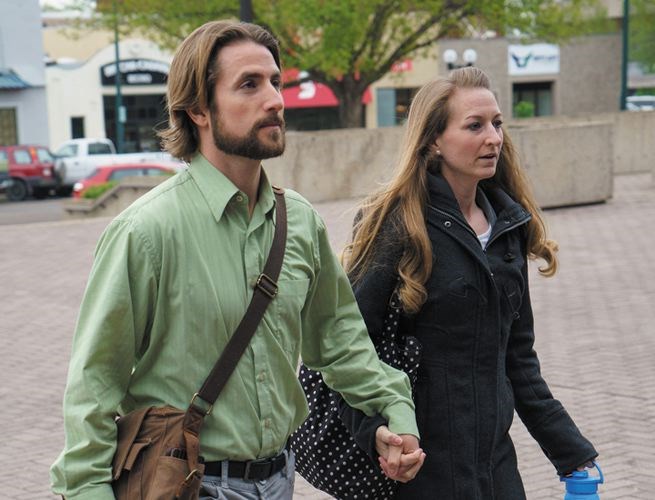Most parents say they would do anything to keep their children safe and to protect them from harm.
But not all parents feel this way. Too many would apply exceptions to such unconditional love.
David and Collet Stephan let their 19-month-old son Ezekiel die in March 2012 because they insisted their natural, home-based remedies could cure their son of what they thought was croup or the flu. Even when a nurse friend informed the Lethbridge couple that their son probably had meningitis, they did not seek professional medical attention. Only when he stopped breathing was he finally rushed to hospital.
A four-man, eight-woman jury found the couple guilty of failing to provide the necessaries of life on Tuesday, a crime that comes with a maximum penalty of five years in prison. They are both deserving of every minute of those five years.
Their inaction is the moral equivalent of letting a baby girl die of thirst for fear the fluoridated water will poison her. Both a diagnosis and treatment for Ezekiel was readily available but his parents chose not to provide either of them. That is the very definition of willful ignorance and negligence.
Sadly, however, there is nothing unusual about parents willing to harm their child (or even someone else's) to uphold their personal beliefs and their right to raise their children as they see fit.
For Jehovah's Witnesses, blood transfusions are a sin. If the child of Jehovah's Witnesses parents requires a blood transfusion to save their life, those parents are faced with the dilemma of either providing essential health care to their child or willfully violating their faith.
Other parents decide the risk of vaccinating their children outweighs both the risk of their child becoming seriously ill or becoming a carrier and sharing the virus with others.
Parents are endlessly challenged with trying to do the right thing.
That ethic must come with the willingness to admit being wrong and changing course. The Stephans appear to have had good intentions as parents yet those good intentions were mired in a faulty belief and the refusal to admit they were mistaken.
Standing up for ideals is important but rigid adherence to any belief, even in the face of blatant contrary evidence or grave danger, leads to the dehumanizing behavior that contributed to Ezekiel's death.
Tim Caulfied of the University of Alberta has written two excellent books (available at your public library) on the ridiculous lengths people will go in the desire for good health and the fierceness with which they will defend their health choices.
"It's like a religion to them," he told The Canadian Press. "Studies have shown that some people are more likely to believe these kinds of things... (and) they can't change their mind because then they're losing part of their identity package. They're losing part of who they are."
In other words, their worldview is so tied to their identity that harming themselves or even their own children is justified. The most famous example of this is the willingness of Abraham to sacrifice his son, Isaac, a story told in various forms in the Bible, the Torah and the Quran as a testament of what true faith in God looks like.
This recklessness in parenting is commonly seen outside of the parameters of religious dogma as well but pursued with the same blind fervor.
The zealotry demonstrated by the Stephans for natural cures and against the perceived evils of modern medicine is all too common.
The same fanaticism is used to reject vaccinations and putting fluoride in public water, both proven child health initiatives.
Unfortunately, psychologists have found humans seem hard-wired to behave this way. Confirmation bias lets us accept what justifies our views and reject what doesn't with little mental effort.
On the contrary, to argue like you're right and listen like you're wrong, as the saying goes, is simply too much work.
Worst of all, so-called experts and support networks are an online click away from rationalizing the most ridiculous nonsense in the name of good parenting.
Caulfield calls them "quackademics."
The play on words would be hilarious if it weren't so tragically true.
-- Managing editor Neil Godbout



